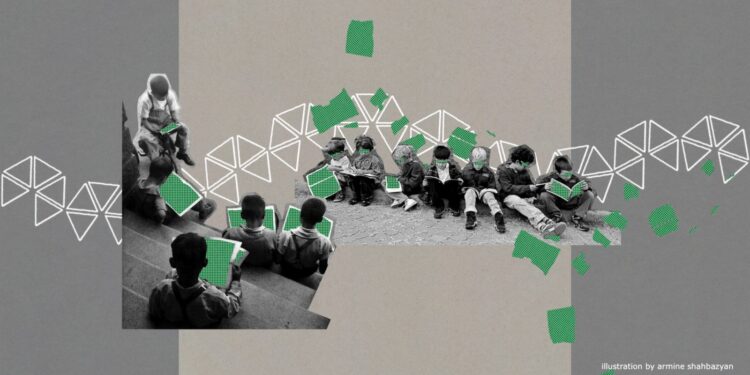Politics
Courting Influence: Azerbaijan’s Lobbying Network in Italy
Azerbaijan’s lobbying efforts in Italy reveal a coordinated network of academics and media figures promoting pro-Baku narratives. Jelena Melikyan explores the ethical concerns, historical distortions, and impact on Italian public discourse, particularly regarding Armenia and Nagorno-Karabakh.
EU-Armenia Relations at a Crossroads: Between Normative Values and Pragmatism
Armenia's deepening relationship with the European Union faces complex challenges amid regional pressures and security concerns. As Yerevan strategically diversifies from Russian influence, EU engagement has grown, however, its impact remains limited without a credible membership path, a strategy tailored to Armenia’s vulnerabilities and balancing its normative commitments with its geopolitical and energy interests.
Hijacking History: Baku’s “Western Azerbaijan” Campaign
Baku’s “Western Azerbaijan” campaign uses fabricated historical claims and cultural appropriation to assert territorial ambitions over Armenia. Armine Tigranyan traces the roots, tactics and international reach of this systematic campaign of historical revisionism and cultural erasure.
The Armenian Genocide: Between Diplomatic Pragmatism and Moral Obligation
Successive Armenian leaders have navigated the tension between pursuing international recognition of the Armenian Genocide and maintaining diplomatic pragmatism, especially in relation to Turkey, diaspora expectations, and evolving foreign policy priorities since independence. Hovhannes Nazaretyan explains.
Brussels Speaks, Baku Ignores
As the European Parliament demands the release of Armenian hostages in Azerbaijan in a strongly worded resolution, Baku continues to ignore the call, while Armenia’s push to finalize a peace treaty, seemingly at any cost, risks diluting the resolution’s impact and undermining potential leverage in securing justice.
Smoke Signals or Political Will: Armenia’s EU Membership Bill
Armenia’s parliament passes a bill formally declaring the country’s intent to pursue EU membership. Supporters see it as a step toward strengthening democracy, security and economic well-being, while critics question its necessity, arguing that deeper ties with the EU were already progressing without such a declaration.
Armenia Pursues Peace, Azerbaijan Seeks Coercion
Azerbaijan’s delay in committing to a peace agreement suggests a strategy of coercion to extract unilateral concessions and weaken Armenia’s sovereignty. The international community must go beyond praise and apply real pressure to ensure a fair, enforceable peace to stop the cycle of aggression.
Countering Azerbaijan’s Coercion: Armenia’s Deterrence Strategies
Azerbaijan employs coercive tactics to pressure Armenia into political concessions. Davit Petrosyan examines Aliyev's strategy, Armenia's vulnerabilities, and the risks of dropping legal claims. He argues that, beyond military strengthening, Armenia must develop its own coercive strategy targeting Aliyev’s key fears and vulnerabilities, effectively deterring Azerbaijan.
Azerbaijan’s Sham Trials: State-Sponsored Hatred and the Erosion of Peace
The sham trials of Nagorno-Karabakh’s former leaders and other Armenian prisoners in Baku expose Azerbaijan’s state-sponsored hatred against Armenians, fueling animosity, obstructing peace efforts and reinforcing Aliyev’s authoritarian grip.
The Armenians of the Holy Land in Israel’s Crosshairs
The Armenian Patriarchate of Jerusalem warns it is at risk of losing properties to the Jerusalem municipality. While unrelated to the Cow’s Garden dispute, the case highlights broader threats to the Armenian community’s survival and the Christian presence in the city.












